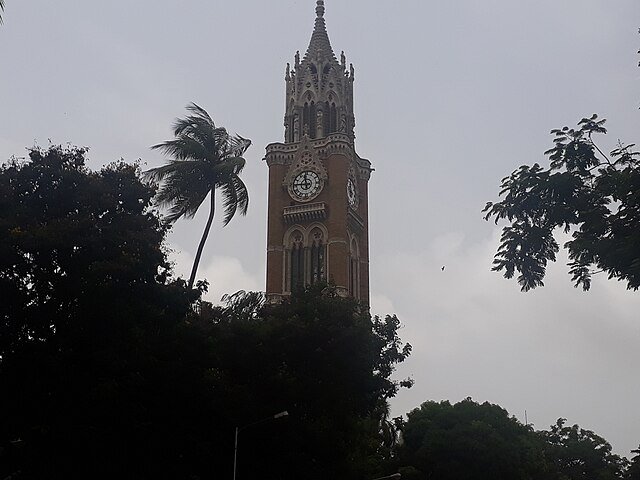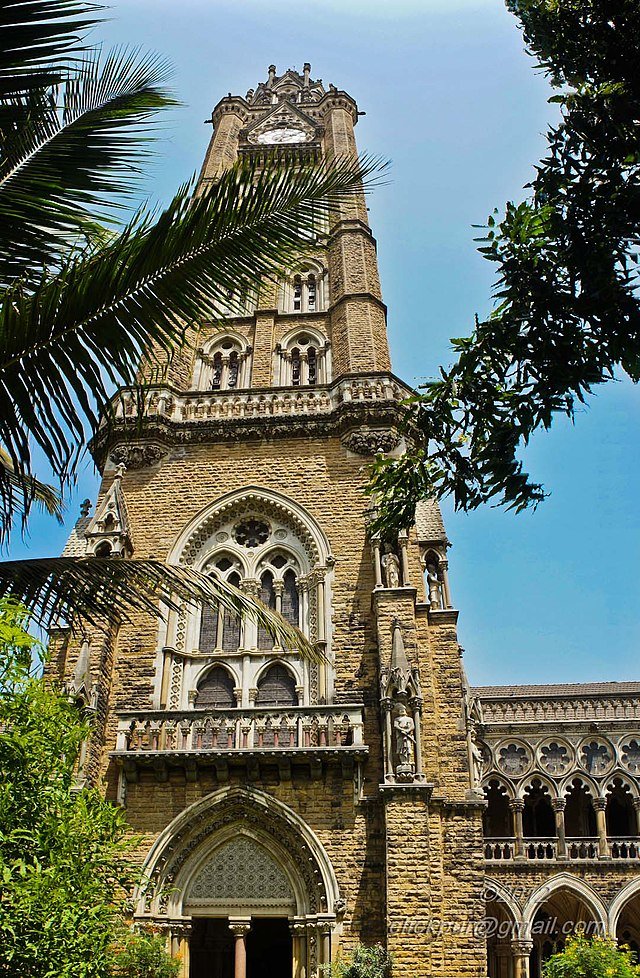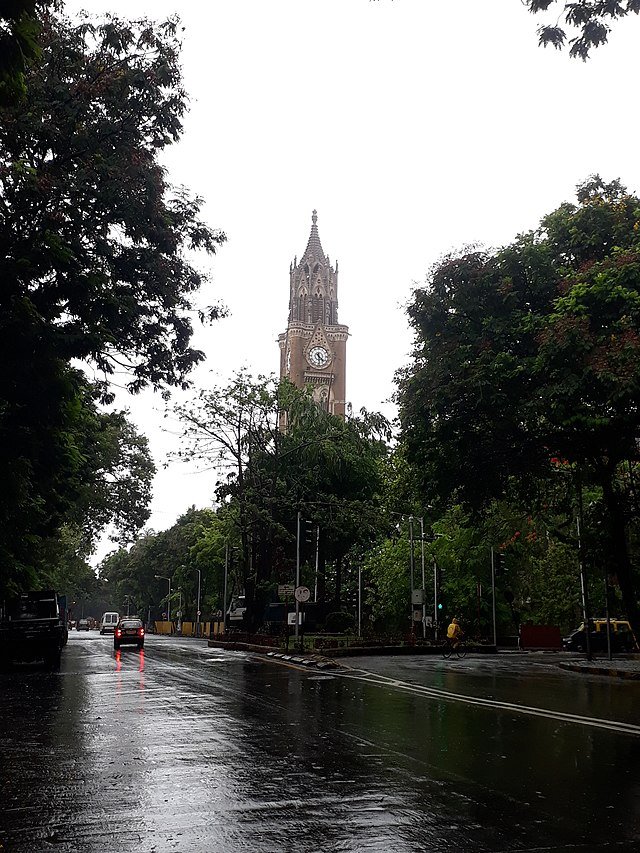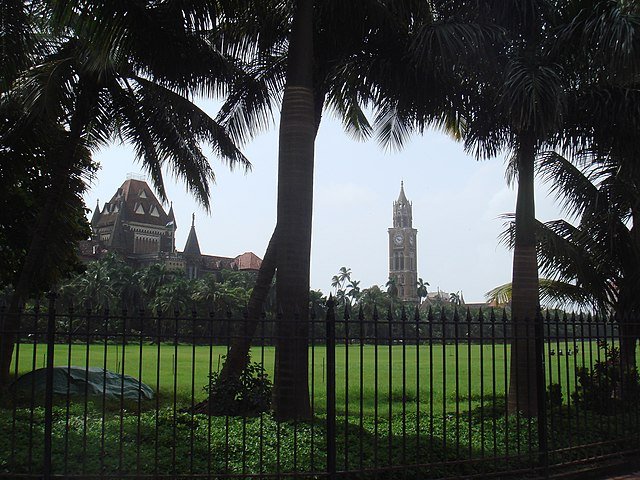Rajabai Tower History: Famous Gothic Jewel in Mumbai’s Heritage Crown
- Location: Mumbai
- Categories: Historical Place, Monument, Tourist Places
- Tags: Colonial Architecture, Gothic Architecture, Gothic architecture Mumbai, Indian Landmarks, Mumbai clock towers, Mumbai Heritage, Mumbai heritage sites, Premchand Roychand, Rajabai Tower, Rajabai Tower history, UNESCO sites Mumbai., University Of Mumbai, University of Mumbai landmarks, Victorian Era India, Victorian Gothic buildings India
- Location Taxonomy: India, Maharashtra, Mumbai
Rajabai Tower is not just a clock tower—it’s a timeless symbol of Mumbai’s architectural grandeur and cultural legacy. Nestled within the University of Mumbai campus, this majestic structure has stood tall since the 19th century, echoing stories of colonial ambition, artistic brilliance, and personal devotion.
In this article, we’ll explore the fascinating history of Rajabai Tower, its architectural features, cultural significance, and why it remains one of Mumbai’s most iconic landmarks. Whether you’re a history buff, architecture enthusiast, or a traveler planning your Mumbai itinerary, this guide will give you everything you need to know.
Quick Overview of Rajabai Tower

- Location: Fort Campus, University of Mumbai, Maharashtra, India
- Built in: 1878
- Architectural Style: Venetian-Gothic
- Height: Approximately 85 meters (280 feet)
- Architect: Sir George Gilbert Scott
- Funded by: Premchand Roychand, a prosperous broker and founder of the Bombay Stock Exchange
- Named after: Rajabai, mother of Premchand Roychand
The Origins: A Tribute to a Mother
Rajabai Tower was commissioned by Premchand Roychand, one of Mumbai’s wealthiest businessmen in the 19th century. The tower was named after his mother, Rajabai, who was blind. Legend has it that the hourly chimes of the tower helped her know the time without assistance—a touching blend of utility and sentiment.
Architectural Brilliance: Venetian-Gothic Style

Designed by British architect Sir George Gilbert Scott, Rajabai Tower is a stunning example of Venetian-Gothic architecture. This style is characterized by:
- Pointed arches
- Ornate stained glass windows
- Intricate stone carvings
- Spire-like towers
The tower’s design was inspired by the Big Ben in London, but with Indian flourishes that make it unique.
Artistic Elements and Interior Details

Inside the tower, the beauty continues:
- Stained glass windows depicting scenes from Indian mythology
- Sculpted figures and floral motifs
- A spiral staircase leading to the top
- Clock mechanism that once chimed every 15 minutes
Though public access to the interior is restricted today, the exterior alone is a visual feast.
Location and Accessibility

The Tower is located in South Mumbai’s Fort area, within the University of Mumbai’s Fort campus. It’s easily accessible via:
- Churchgate Station (Western Railway)
- CST Station (Central Railway)
- Local taxis and BEST buses
Nearby attractions include:
- Chhatrapati Shivaji Maharaj Terminus (CSMT)
- Flora Fountain
- Oval Maidan
- Gateway of India
Rajabai Tower’s Role in Mumbai’s Heritage
Rajabai Tower is part of the Victorian Gothic and Art Deco Ensemble of Mumbai, which was declared a UNESCO World Heritage Site in 2018. It represents:
- Colonial-era architecture
- Mumbai’s academic legacy
- Cultural fusion between East and West
It’s a favorite among photographers, history lovers, and architecture students.
Visual Highlights
Here are some of the most striking visual features of The Tower:
- 🏰 Towering spire with Gothic detailing
- 🌸 Floral stone carvings on the façade
- 🌈 Stained glass windows with mythological themes
- 🕰️ Ornate clock faces on all four sides
- 🪟 Arched windows and balconies
Timeline of Rajabai Tower
| Year | Event |
|---|---|
| 1878 | Construction completed |
| 1880s–1900s | Became a symbol of colonial Mumbai |
| 2000s | Restoration efforts began |
| 2018 | Included in UNESCO World Heritage Site listing |
Sources:
Fun Facts About Rajabai Tower
- The tower was once the tallest structure in Mumbai.
- It used to play 16 different tunes, including “God Save the Queen.”
- The stained glass windows are among the finest in India.
- It was built using locally sourced Kurla stone.
Best Time to Visit Rajabai Tower
- Season: October to March (pleasant weather)
- Time of Day: Early morning or late afternoon for best lighting
- Photography Tip: Use a wide-angle lens to capture the full height and Gothic details.
❓ FAQs About Rajabai Tower
Q1: Can tourists go inside Rajabai Tower?
A: No, the interior is currently closed to the public due to preservation concerns. However, the exterior is freely accessible.
Q2: Is Rajabai Tower part of a UNESCO World Heritage Site?
A: Yes, it’s part of the Victorian Gothic and Art Deco Ensemble of Mumbai, listed in 2018.
Q3: Who built Rajabai Tower?
A: It was funded by Premchand Roychand and designed by Sir George Gilbert Scott.
Q4: What is the architectural style of Rajabai Tower?
A: Venetian-Gothic, inspired by European cathedrals and clock towers.
Q5: Why is it called Rajabai Tower?
A: It’s named after Rajabai, the mother of its patron, Premchand Roychand.
Conclusion: Why Rajabai Tower Matters
Rajabai Tower is more than just a monument—it’s a story carved in stone. It reflects Mumbai’s colonial past, artistic ambition, and emotional depth. Whether you’re exploring the city’s heritage or curating content for SEO, this Gothic marvel deserves a spotlight.
If you’re a content creator, travel blogger, or SEO strategist, targeting keywords around Rajabai Tower can help you tap into a niche audience interested in Indian heritage, architecture, and travel.
